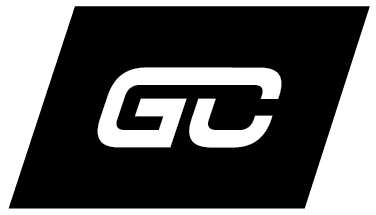Crossing the Bridge
Building a bridge between sports and business is becoming easier for some players to navigate. A great example is Andre Iguodala of the Golden State Warriors. Iguodala is a a two time NBA champion and Finals MVP yet he’s still pursuing business outside of his sport. In an article that Iguodala posted on LinkedIn he states,
“When I joined the Golden State Warriors and moved to the Bay Area, I was inspired by the growing businesses and the diversified opportunities that the tech capital of the world—Silicon Valley—had to offer. One of my reasons for deciding to join the Warriors was to put myself in a position, geographically, that allowed me to become immersed in the growing tech industry.”
That is a prime example of a genuine career strategy. One that maximizes his experience as a professional athlete. A successful NBA player who’s making millions of dollars had the foresight to get involved in what interested him outside of the game while he’s still playing.
A key role I play at Game Change, particularly with our professional athletes, is to build bridges for the athletes and connect them with sustainable opportunities outside of sports. Utilizing a career strategy methodology developed in house. It is what I love to do. My role is really to help athletes see both connections and gaps. Specifically, connections between people and ideas. Plus, I help athletes identify skills, knowledge, and attributes they bring to the table, how to articulate them and what they can do to address identified Gaps. Game Change then begins to help the athlete wire in. I help connect the athlete to businesses, educational, philanthropic initiatives and other pursuits that are an ideal fit.
My colleagues and I at Game Change have always understood that athlete development is about creating competitive performance advantages. We are excited to be positioned at the forefront of the increasingly specific connection between athletic performance and the active pursuit of non-athletic pursuits.
What does this mean? It means the bridges athletes build today while competing are not lifelines for athletes transitioning from sports to ‘life after.’ They are in fact a tool an athlete can use to impact his or her performance now directly.
Building awareness on the benefits of these ‘bridges’ on athletic performance is a process and will take some to time to permeate the sports community. But the message is starting to get through.
Iguodala isn’t the only player who is making this connection in professional sports, let alone basketball. Jaylen Brown of the Celtics recently held a technology event for education and networking at the NBA All Star Game so that he and other players could learn about this growing business and have conversations about what’s going on outside of their sport. Brown is only 21 years old and was the third overall pick in the NBA draft. Some might assume that he has a long career ahead of him and he sees the value in preparing himself for life after sport early.
“My thought process is to just educate athletes and people around you about what is really going on, especially basketball players,” Brown said. “A lot of people wait until the end of their careers to really get things going. I thought it would be more beneficial to start early, put your foot in the door and start educating yourself, because technology investments are where the real money is at.”
I am fascinated with the prospect and monitoring the progress of individuals like Iguodala and Brown as they progress through their Basketball careers and their careers after Basketball. And I am excited at the prospect of working with other elite athletes to replicate their strategies and create sustainable, life long success.
Many elite athletes are starting to pursue interests outside of sport in order to balance themselves as individuals and see immediate impacts on their athletic career. Bridging the gap between sport and outside interest will get easier as the message gets circulated. When players comprehend the performance impact, they not only ask for a hammer, they will demand it so they can begin to build their bridges outside the game.
Game Change was founded in 2011 to serve and enhance the athlete development needs of major professional and elite sport organizations and athletes. Game Change specializes in customized research and assessment services, the development of applied interventions and resources designed to provide long-term positive outcomes for organizations and individual athletes. Game Change believes strongly in sport as a catalyst for societal change and adheres to the philosophy of ‘changing the world one athlete at a time’.



